In an era of aging infrastructure where the average age of a public school building is 50 years, coupled with evolving educational needs, school districts nationwide are increasingly turning to bond elections to fund crucial facility upgrades.
Tim McClure, Assistant Superintendent for Facilities at Northwest ISD, one of Texas's fastest-growing school districts, shared insights at the K12 Facilities Forum on how to successfully navigate the often complex process of passing bonds to build or renovate school facilities.
McClure emphasized the importance of what he called the "ABCs" of passing a bond initiative: Aggregate, Budget, and Communicate. These three pillars form the foundation of a successful bond campaign and implementation strategy.
Aggregating Information
The first step in the process is gathering comprehensive data about the district's needs. This includes several variables, including:
- Conducting facility assessments and technology needs/upgrades
- Analyzing enrollment growth projections
- Budgetary costs and renovation/new build timelines
- Transportation needs
- Understanding the community's priorities
McClure stressed the importance of involving district residents and stakeholders in this process through a long-range planning committee, which in his district includes about 80 community members. They meet bi-monthly over several months before making a final recommendation to the board of education about what should be included in the bond proposal.
The goal is to create a holistic picture of the district's needs and requirements, ensuring that no crucial element is overlooked. In addition, McClure said it’s important to keep this committee engaged even after a bond is passed. Even after Northwest ISD voters passed a $2 Billion bond in May 2023, the committee still meets twice a year to give them updates and keep them engaged in the implementation of the various facets of the proposal.
“It’s important for them to see the fruits of their labor,” he said. “They can see the things they worked for and how they’re being put into use.”
Budgeting Wisely
Once the needs are identified, developing a realistic budget is next. This process involves more than just tallying up costs; it requires a deep understanding of the various factors that influence the final price tag.
"A lot of times, our communities or our people who are out there voting don't understand what the budget means. They just see a big number," McClure said. “But if you clearly explain what the money is going to be used for, it can help ease some of the perceived sticker shock.”
McClure emphasized the importance of educating the community about all the components that go into the budget, including soft costs, contingencies, technologies, and even off-site utility costs for new construction in developing areas. Moreover, districts must project and account for cost escalation, especially in today's volatile economic environment.
An interesting approach Northwest ISD takes is initially removing budget numbers when asking their bond committee to prioritize projects.
"We don't want that to be an influence on their first pass," McClure said. "We want them to take those ideas and projects on their merits – what is best for students, what is the value for the school district."
Communicating Effectively
The final, and perhaps most crucial, element is communication. McClure stressed the importance of starting the communication process as early as possible, particularly with staff members, before the board officially calls for a bond election. This allows for candid discussions about the pros, cons, and potential consequences of the bond.
Timing is key. It can be several months after a board of education puts a bond on the ballot before district residents enter the voting booth.
"If you peak your messaging too soon, the message gets dull on people," McClure said. "You want to peak at the right time, just before going into an election."
Northwest ISD employs various communication strategies, including Facebook Live sessions, dedicated websites for the long-range planning committee and bond information, and collaboration with a political action committee formed by community members to market and advocate for the bond in the run-up to the election.
After passing a bond, McClure’s district maintains a website showing the monthly progress of the various projects outlined in the bond.
He also highlighted the importance of conducting targeted community surveys. These surveys not only gauge initial support but also help identify which messages resonate with different demographic groups, allowing for more targeted, effective communication strategies.
"We take all this data, and while the bond committee is evaluating it all and forming the pieces that will comprise the bond they're going to recommend, we also go out to the community with a survey," McClure said. “The more voices, the better.”
Creating a Culture of Voting
Ultimately, a primary goal of these efforts is to create what McClure calls a "culture of voting" within a school district community. This involves ongoing efforts to encourage voter registration and participation during bond elections – and all other local elections.
"You want to make sure that you’re creating a consistent culture of voting because you want to have engagement at all levels. No one should be a passive participant," McClure said.
By following these ABCs – aggregating information, budgeting wisely, and communicating effectively – school district leaders can increase their chances of passing crucial bond measures.
Perhaps more importantly, leaders can ensure that when a bond is on the ballot, it truly reflects the needs and values of district communities, leading to enhanced facilities, better educational outcomes for students, and stronger support for public education going forward.
Posted by
Join us at the K12 Facilities Forum!
The community for district and facilities leaders
Nov 8-10, 2026 | San Antonio, TX



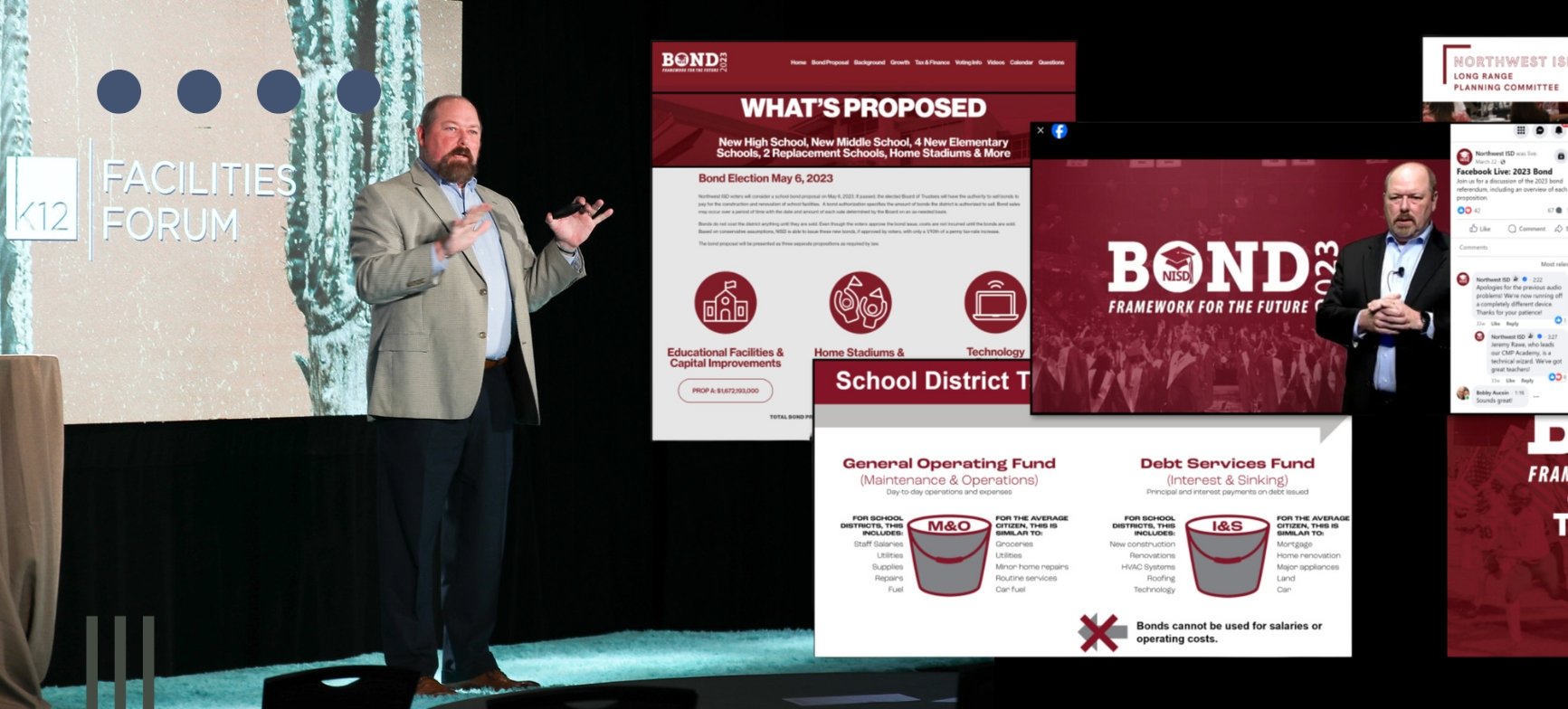

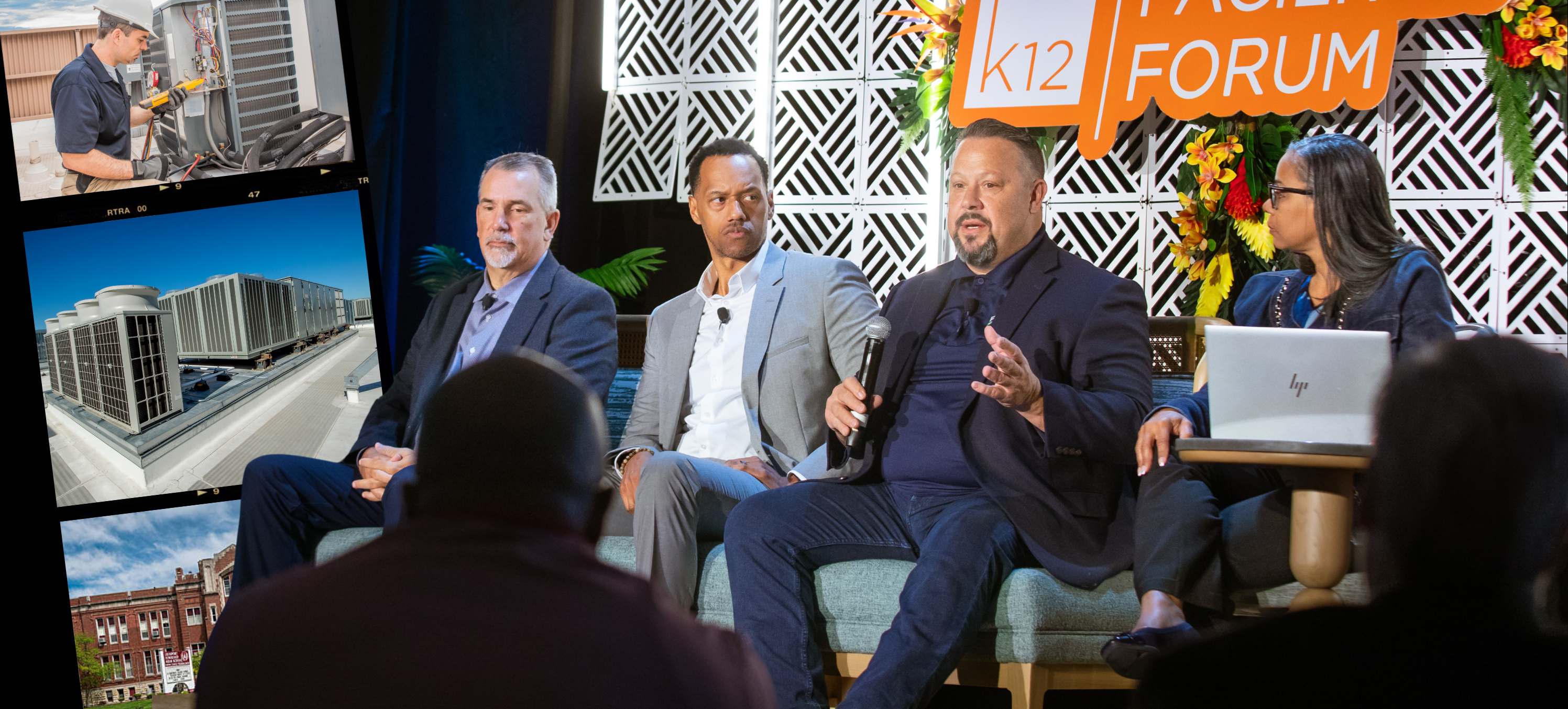
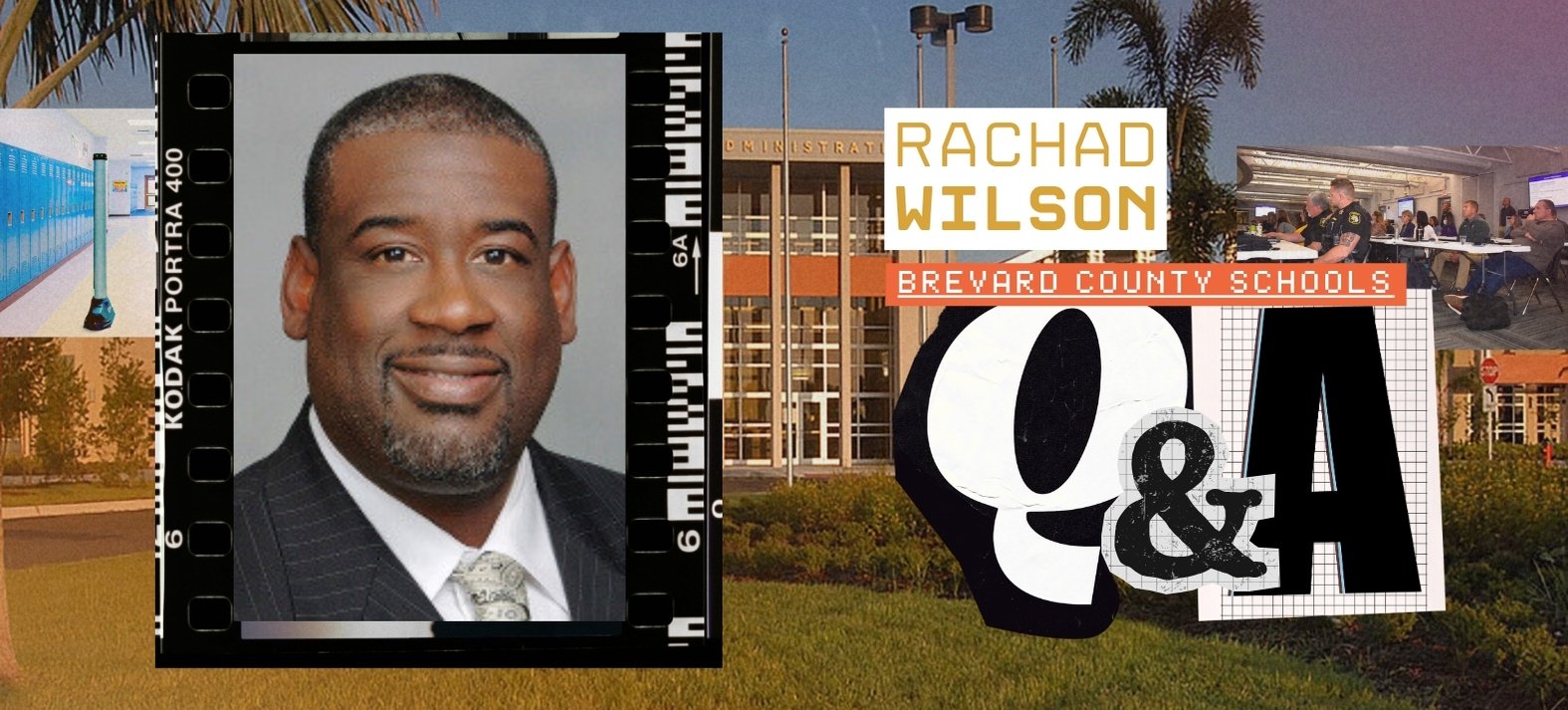
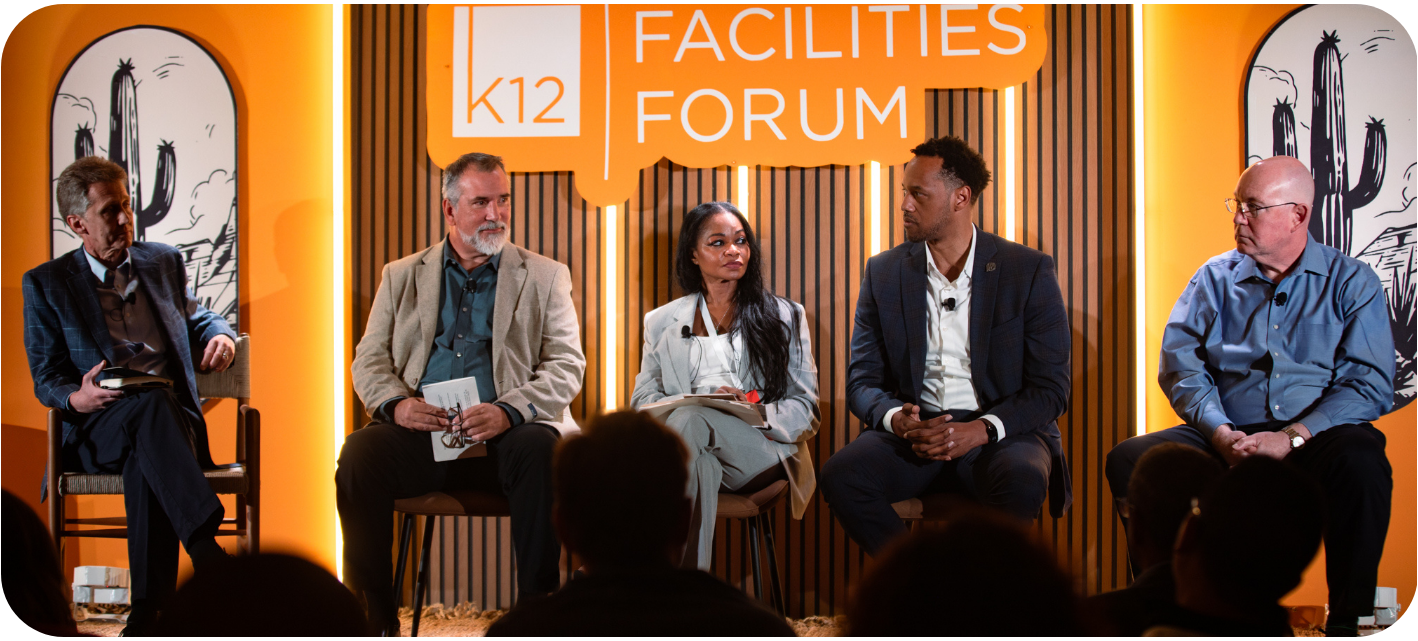
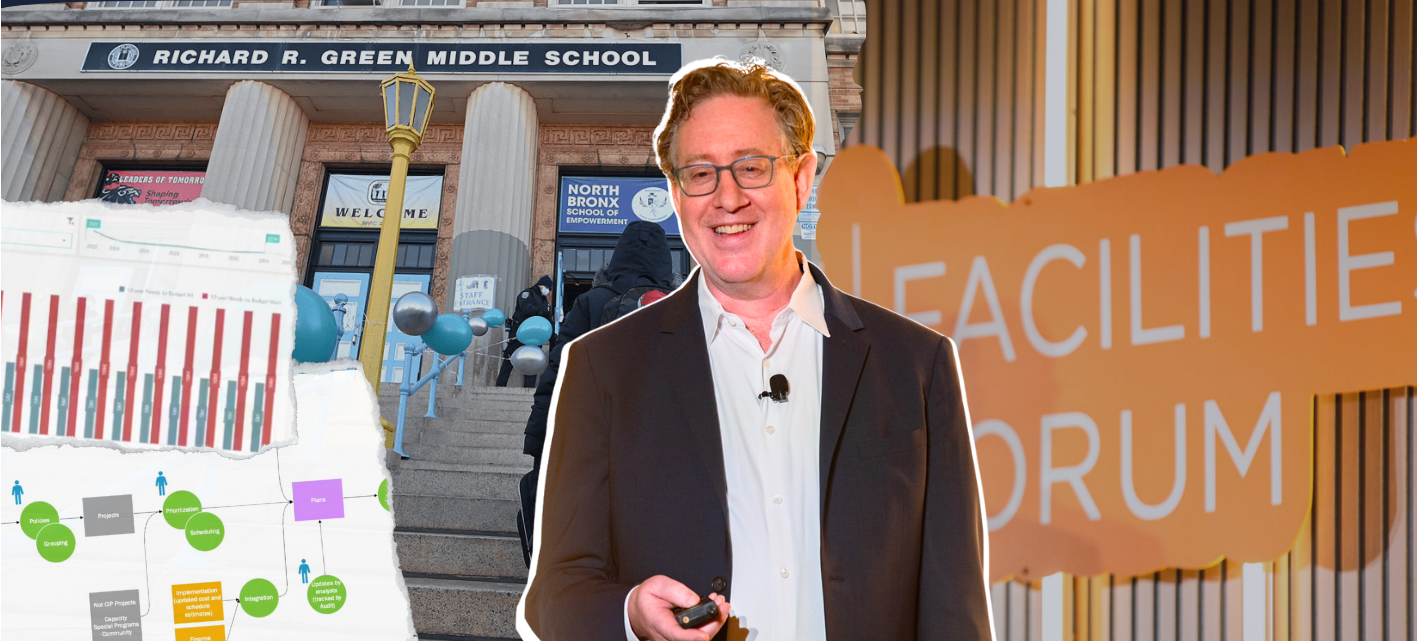
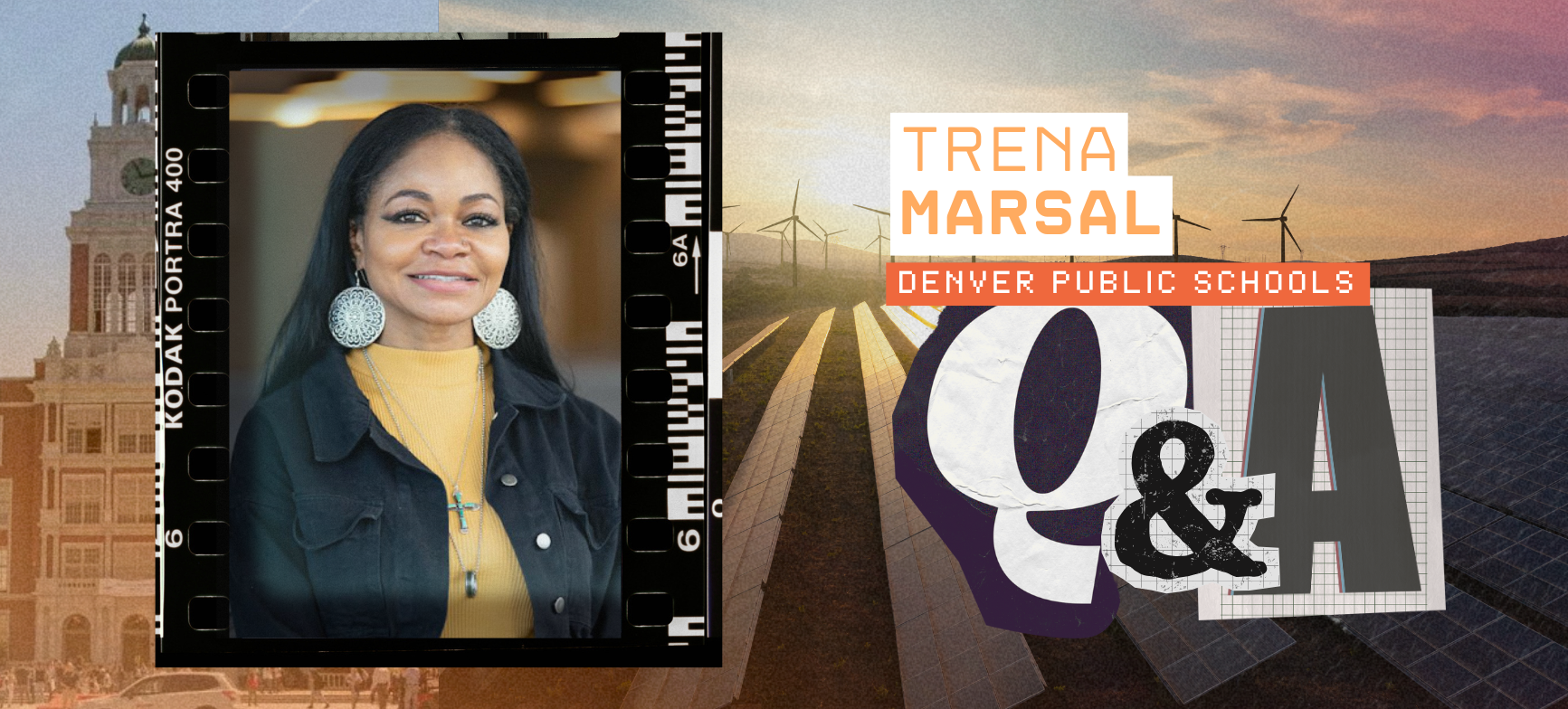

Comments